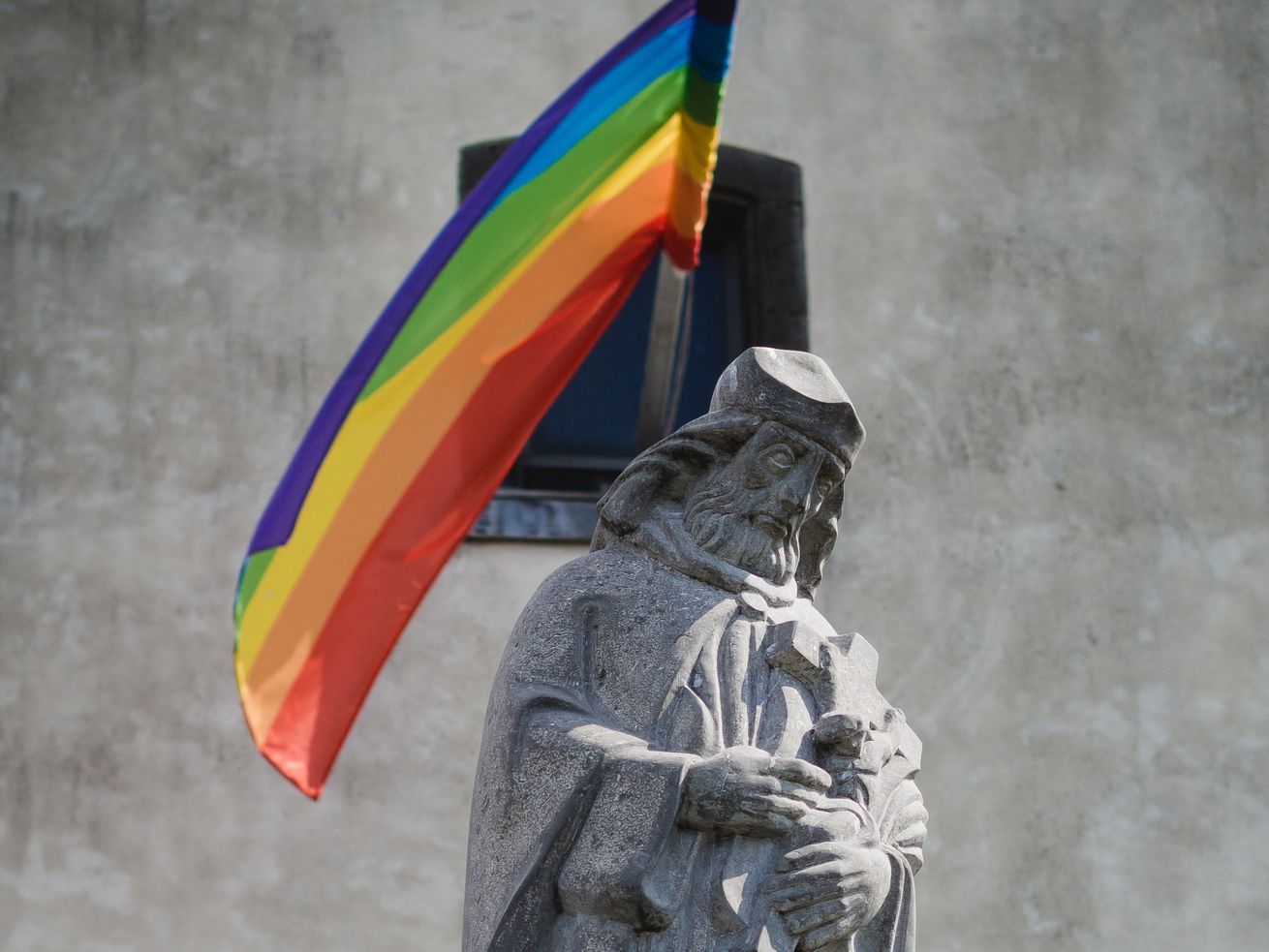
The Supreme Court doesn’t view human rights as a zero-sum game. Do lawmakers?
Can the government discriminate against religious entities because of their beliefs about marriage? The Supreme Court resolved that question with a resounding “no” in its unanimous decision in Fulton v. City of Philadelphia. Members of Congress must now decide whether to use that decision to further inflame political tensions between traditional faith groups and advocates for LGBTQ rights, or to help guide the nation on a path toward coexistence.
The court had already provided important guidance on the intersection of religious freedom and LGBTQ protections. In its decision on same-sex marriage in Obergefell v. Hodges, the court was careful to emphasize that “decent and honorable religious or philosophical premises” lead many people to believe in traditional marriage, and that the First Amendment protects these beliefs.
Then, in Masterpiece Cakeshop, the court reminded lawmakers everywhere that singling out a religious belief about marriage for hostile treatment is unacceptable: Such hostility is “inconsistent with the First Amendment’s guarantee that our laws be applied in a manner that is neutral toward religion.”
And when the court decided in Bostock v. Clayton County that Title VII covers sexual orientation and gender identity discrimination, the court again reinforced its commitment to “preserving the promise of the free exercise of religion enshrined in our Constitution” because “that guarantee lies at the heart of our pluralistic society.”
These commitments — embraced by justices across the ideological spectrum — were not throwaway lines. The court was being clear that protections for the LGBTQ community need not and should not come at the expense of religious communities that hold to a traditional sexual ethic.
In short, the court doesn’t view human rights as a zero-sum game.
Fulton provides another key constitutional guidepost: The government cannot deny religious organizations the opportunity to participate equally with secular organizations simply because they hold — and act on — religious beliefs about marriage.
The case was brought by two foster moms, both single women of color, and their chosen foster care agency partner, Catholic Social Services, after Philadelphia tried to shutter the agency because of its Catholic beliefs about marriage. The city cut ties with CSS despite the facts that it was experiencing a foster home shortage, CSS was one of the most successful agencies in the city, and approximately 70% of the children in CSS’s care were Black or other racial minorities.
In other words, bureaucrats were willing to let minority kids remain in institutional care, even sleep in offices, while beds in loving, qualified foster homes sat empty — because of an ideological crusade.
Fortunately, the court has now made clear that the First Amendment protects the right of religious organizations like CSS to participate in such programs on equal terms with others: “CSS seeks only an accommodation that will allow it to continue serving the children of Philadelphia in a manner consistent with its religious beliefs; it does not seek to impose those beliefs on anyone else.”
The decision is a significant win for peaceful pluralism: Yes, the LGBTQ community should be protected; its claims for protection are legitimate and overdue. But religious communities seeking to faithfully live out their beliefs on marriage and sexuality should also be protected.
The Constitution and the court have laid the boundaries of the field. Members of Congress now have an opportunity to set the rules of the game. And they have an obligation under their oath to do so thoughtfully and carefully, rather than at the behest of special interests and campaign endorsements.
In light of Fulton, some legislative proposals pending in Congress will need to be abandoned or substantially modified. Bills like the Equality Act and the Do No Harm Act would legislatively impose the very punitive and discriminatory treatment of religious institutions that the court just rejected.
Instead, the court’s rulings point the way to a better legislative path, one that recognizes peaceful coexistence as not just a possibility, but as a requirement imposed by the Constitution. It is also a political imperative given that America is a pluralistic society, filled with many cultures, beliefs and traditions. We will inevitably encounter conflict, but we can respect one another and protect many different rights amid our disagreements.
Many faith traditions, including my own, believe such a unifying approach is achievable nationally, just as it was achieved in 2015 in Utah. That approach is also consistent with President Joe Biden’s emphasis on unity during last year’s campaign.
Now is the time for politicians of every stripe to rise to that ideal, and in so doing ensure protection for all legitimate human rights, not just those that are politically favored.
Gordon Smith is a former U.S. senator from Oregon and currently serves as president and CEO of the National Association of Broadcasters.
from Deseret News https://ift.tt/3rG9enH

No hay comentarios:
Publicar un comentario